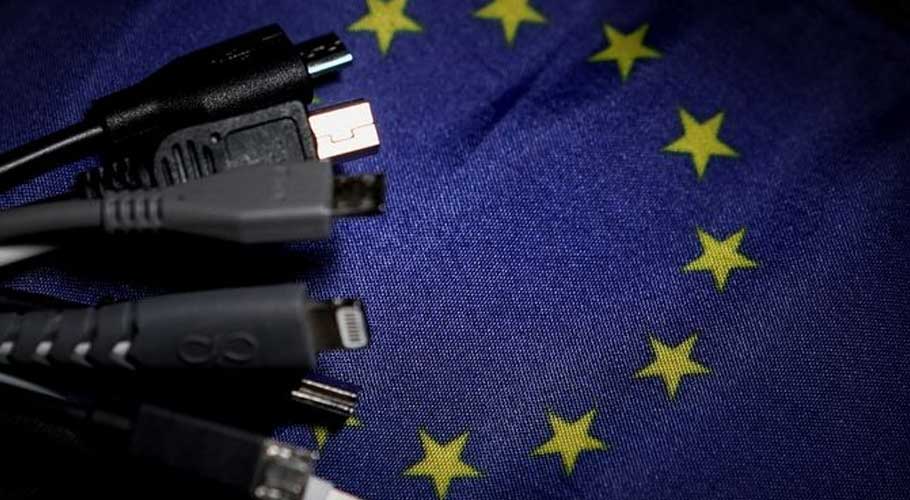LONDON: The European Commission, the executive arm of the European Union, on Thursday unveiled plans that would require smartphone manufacturers and other electronics makers to equip their devices with a standard USB-C charging port.
The aim is to reduce waste by encouraging consumers to re-use existing chargers when buying a new device. The commission said the typical person living in the EU owns at least three chargers, and use two regularly, but 38% of people report not being able to charge their phones at least once because they couldn’t find a compatible charger.
Under the proposed law, which must still be scrutinized by the European Parliament, phones, tablets, digital cameras, handheld video game consoles, headsets and headphones sold in the European Union would all have to come with USB-C charging ports.
The main holdout is Apple, which has resisted the bloc’s efforts for a unified standard. iPhones come with the company’s own Lightning charging port, though the newest models come with cables that can be plugged into a USB-C socket.
A spokesperson for Apple said in response that the firm stands for innovation and deeply cares about the customer experience. “We share the European Commission’s commitment to protecting the environment and are already carbon neutral for all of our corporate emissions worldwide,” they said.
“We remain concerned that strict regulation mandating just one type of connector stifles innovation rather than encouraging it. We look forward to continued engagement with stakeholders to help find a solution that protects consumer interest, as well as the industry’s ability to innovate and bring exciting new technology to users,” they added.
Rivals like Samsung and Huawei have equipped some of their latest phones with USB-C ports, while many of their older handsets have micro-USB ports.
The proposal is part of a revised Radio Equipment Directive that will need to pass a vote in the European Parliament before it becomes law. If the proposal does become law, device makers will have two years to comply with the new legislation.



































